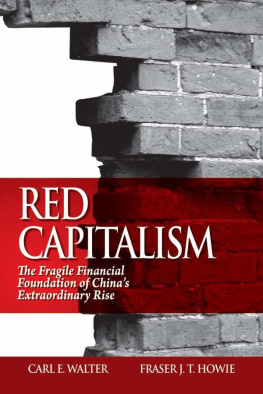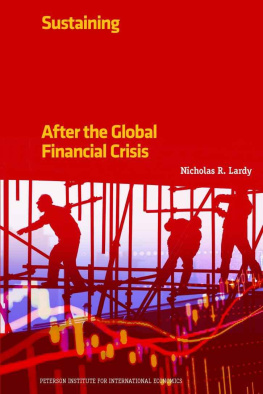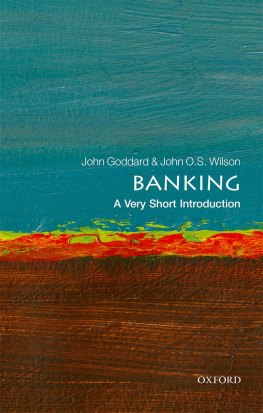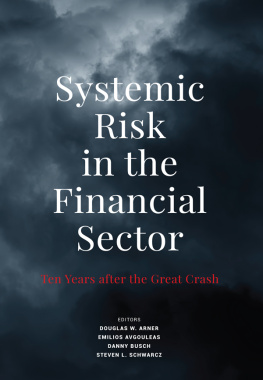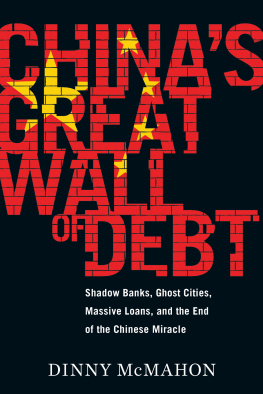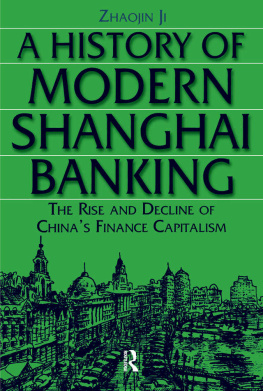Contents

Copyright 2011 John Wiley & Sons (Asia) Pte. Ltd.
Published in 2011 by John Wiley & Sons (Asia) Pte. Ltd.
2 Clementi Loop, # 02-01, Singapore129809
All rights reserved.
No part of this publication may be reproduced, stored in a retrieval system, or transmitted in any form or by any means, electronic, mechanical, photocopying, recording, scanning, or otherwise, except as expressly permitted by law, without either the prior written permission of the Publisher, or authorization through payment of the appropriate photocopy fee to the Copyright Clearance Center. Requests for permission should be addressed to the Publisher, John Wiley & Sons (Asia) Pte. Ltd., 2 Clementi Loop, # 02-01, Singapore 129809, tel: 65-6463-2400, fax: 65-6463-4605, e-mail: .
This publication is designed to provide accurate and authoritative information in regard to the subject matter covered. It is sold with the understanding that the publisher is not engaged in rendering professional services. If professional advice or other expert assistance is required, the services of a competent professional person should be sought.
Neither the author nor the publisher are liable for any actions prompted or caused by the information presented in this book. Any views expressed here in are those of the author and do not represent the views of the organizations they work for.
Other Wiley Editorial Offices
John Wiley & Sons, 111 River Street, Hoboken, NJ07030, USA
John Wiley & Sons, The Atrium, Southern Gate, Chichester, West Sussex, P019 8SQ, United Kingdom
John Wiley & Sons (Canada) Ltd., 5353 Dundas Street West, Suite 400, Toronto, Ontario, M9B 6HB, Canada
John Wiley & Sons Australia Ltd, 42 McDougall Street, Milton, Queensland 4064, Australia
Wiley-VCH, Boschstrasse 12, D-69469 Weinheim, Germany
Library of Congress Cataloging-in-Publication Data
ISBN 978-0-470-82586-0 (Hardcover)
ISBN 978-0-470-82894-6 (e-book)
ISBN 978-0-470-82893-9 (e-book)
ISBN 978-0-470-82895-3 (e-book)
To John Wilson Lewis
Preface
After three rounds of Privatizing China , our book about Chinas stock markets, we felt like we wanted to look into something new. Since we took our first look at the stock markets in 1999, we have been interested to note the lack of work on the financial side of Chinas miracle that gets beyond the macroeconomics of things. We are the first to agree that living and working in the country for 25 years may not qualify us as experts in economics. We do believe, however, that our experience has given us a feel for how Chinas political elite manages money and the countrys economy. Having worked in banks for longer than we care to remember, we wanted to try to understand how China and its ruling class finance themselves and we knew we had to begin with the banks since, in truth, they are Chinas financial system. Those looking for tales of corruption and princelings with their hands in the till will be disappointed though. We think that the financial side of the story behind a 30-year boom that changed the lives of one billion people is much more interesting; so this is our effort at staking out modern Chinas political economy inside the system.
We do not believe in Chinese exceptionalism. Chinas economy is no different from any other, in spite of the inevitable Chinese characteristics. If there are such things as economic laws, they work just as well in China and for Chinese businesses as they do in other markets. We also do not believe in the recent triumphalism of Chinas bankers and many of its leaders; this is only a diplomatic ploy. Chinas banks survived the global financial crisis, as one senior banker has publicly stated, simply because the financial system is closed off from the world. Having seriously studied the collapse of Mexicos peso in 1994, the Asian Financial Crisis of 1997 and those sovereign-debt crises that have followed, Chinas political elite has no intention of exposing itself to international capital markets. The domestic economy and markets are, and will continue to be, most deliberately closed off. With a non-convertible currency, minimal foreign participation and few overseas assets beyond US Treasuries and commodity investments that will neither be marked-to-market nor sold, why shouldnt the system survive a major international crisis better than open economies? Chinas financial system is designed so that no one is able to take a position opposite to that of the government.
Of course, the private export-oriented sector suffered massive losses in jobs, earnings and the closure of small companies in 2008 and 2009. But Chinas banks were not exposed in any material way to this sector. It is a simple fact that Chinas financial system and its stock, bond and loan markets cater only to the state sector, of which the National Champions represent the reddest of the Red. These corporations, the heart of Chinas state-owned economy, are inside the system. The private economy, no matter how vibrant, is outside the system and, in fact, serves at the will of the system. If nothing else, the events of the fall of 2008 added an additional seal to the Partys determination to sustain a closed, tightly controlled, economy. Dont show me any failed models, is the refrain of the Chinese officialdom these days. But is Chinas own financial system a model for the world to study? Can China be thought of as an economic superpower, either now or in the future, with such a system?
With this sort of question in mind, we began to look at the financial history of the Peoples Republic of China. We were fortunate that 2008 was the thirtieth anniversary of Chinas highly successful Reform and Opening Policy, so there were many excellent retrospectives prepared by the government agencies. The Peoples Bank of China, in particular, produced very useful material, some of which took one of us back 30 years to Beijing University where his study of Chinese banks began. We hasten to emphasize that all the information used in writing this book derives from purely public sources. In China, all of the important ministries, corporations and banks maintain excellent websites, so data is just out there in the wind waiting to be downloaded. In particular, China Bond and the National Association of Financial Market Institutional Investors (NAFMII), a sub-set of the Peoples Bank, have extensive websites providing access to information, in both Chinese and English, on Chinas fixed-income markets. Data for the stock markets have always been plentiful and, we believe, accurate. Again, Wind Information, Chinas Bloomberg equivalent, has been a rich source for us. Then, there are the audited financial statements of Chinas banks, all available online since the respective listings of each bank. Reading these statements has been highly educational. We strongly encourage others, including Chinas regulators, to do the same.
So the modern age of technology provided all the dots that, linked together, present a picture of the financial sector. How they are connected in this book is purely the authors collective responsibility: the picture presented, we believe, is accurate to the best of our professional and personal experience. We hope that this book will, like Privatizing China , be seen as a constructive outsiders view of how Chinas leadership over the years has put together what we believe to be a very fragile financial system.
For all the fragility of the current system, however, one of us is always reminded that his journey in China began in Beijing back in 1979 when the city looked a lot like Pyongyang. With North Korea in the headlines again for all the wrong reasons, it is worth remembering and acknowledging the tremendous benefits the great majority of Chinese have reaped as a result of the changes over the past 30 years. This can never be forgotten, but it should also not be used as an excuse to ignore or downplay the very real weaknesses lying at the heart of the financial system.

